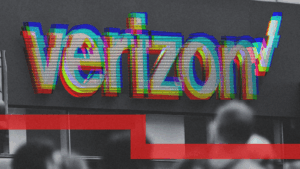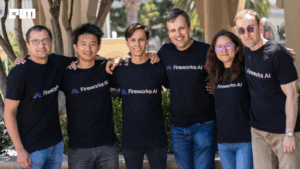When investor Mark Cuban urged students this year to learn how to “integrate AI” into businesses, he was pointing to a problem many companies already face. Large language models and automation frameworks are now widely available, but plugging them into the systems that drive an organization, ERP, CRM, data warehouses, and communications stacks remains a challenge. Companies are responding by creating a new role: the AI integrator.
This title rarely appears in the exact same form. Employers advertise for AI Integration Engineers, AI Solutions Architects, Implementation Specialists, or AI Integration Leaders. Yet across industries and geographies, the job descriptions align. These roles are about stitching AI into production environments securely, reliably, and at scale.
What the Role Actually Entails
The responsibilities listed in current postings go far beyond experimenting with chatbots. Hasbro’s opening for an AI Integration Engineer specifies building “connective tissue” between AI platforms and core applications like SAP and Salesforce. McKesson, a Fortune 10 healthcare company, is hiring an AI Integration Architect to define a provider-solutions roadmap, embed machine learning and natural language processing into clinical software, and ensure compliance with responsible AI standards.
Finance and insurance firms are doing the same. Optima Tax Relief in California has posted an AI Solutions Architect tasked with automating customer-facing processes using AWS AI/ML services and RPA platforms, with a salary range of $130,000 to $145,000. Cybersecurity company Abnormal Security is looking for a Solutions Engineer to map business needs to AI capabilities and implement secure pipelines. And in Portland, creative agency The Program has created a strategist role to institutionalize AI adoption across marketing, strategy, and production.
Even outside traditional technology and services, the need is visible. Retailer Camping World is recruiting for an AI Integration Developer, with explicit requirements to design autonomous AI agents capable of handling multi-step workflows securely across enterprise systems. Industrial firms are also joining in: Delaware Valley Paving is hiring an AI Integration Leader to reimagine estimating, scheduling, and quality assurance processes, listing a salary band of $100,000 to $130,000.
From healthcare and finance to consumer goods, marketing, and construction, the description is the same which is to build secure connections, orchestrate workflows, ensure governance, and train staff to adopt AI-enabled systems.
Why Small and Mid-Sized Firms Are Driving the Trend
The distribution of these roles is striking. While large corporations like Hasbro and McKesson are formalizing senior integration positions, many of the most visible postings are coming from small and mid-sized companies.
Research in 2024 and 2025 consistently highlights why. Surveys show that smaller firms see AI as strategically important but lack in-house expertise and dedicated platform teams. Salesforce’s SMB Trends report found that small and mid-sized businesses continue to prioritize AI adoption, yet training gaps and resource constraints remain among their biggest barriers. Independent studies echo the same point: the absence of technical integration skills is holding back deployment.
As a result, smaller companies advertise for broad, do-it-all roles. These integrators are expected to combine systems engineering, workflow automation, and organizational change management into one position. In contrast, large enterprises typically assign similar responsibilities within existing IT or architecture groups. McKesson’s architect role and Hasbro’s integration engineer are examples of targeted postings that sit within specialized teams, where integration work is divided across multiple functions.
The visibility of integrator jobs in mid-market firms reflects this structural difference. Without established platform units, they need a single hire who can handle everything from API security to employee training.
Job descriptions show a clear set of technical requirements. Companies expect integrators to manage APIs, authentication, eventing, secrets, observability, and orchestration layers. Many explicitly call for expertise in connecting AI tools to ERPs, CRMs, and data warehouses.
Beyond technical plumbing, the roles are tied to outcomes. Optima Tax Relief’s posting outlines projects like chatbots, NLP assistants, and document processors. Camping World emphasizes workflow automation and multi-agent orchestration. McKesson highlights clinical decision support and predictive analytics.
Equally important is governance. McKesson’s architect is charged with enforcing responsible AI practices throughout the software lifecycle. Several postings including those from Zidan Management Group and The Program, stress documentation, user guides, and training programs, underscoring that adoption is as much cultural as it is technical.
Pay Scales and Disparities
But not every company is valuing the role at that level. In Bristol, a job titled “AI Implementation Manager” was recently advertised at £25,000 to £28,000. The title suggested responsibility for managing deployments and overseeing systems, but the pay bracket was closer to that of a junior administrative job. Even as demand grows, the listing illustrates how inconsistently the role is defined across geographies.
Organizations are now creating positions focused entirely on embedding AI into the systems they already rely on. What once began as limited experiments has become core infrastructure across multiple sectors. Looking ahead to 2026, hiring will increasingly favor specialists who can deliver operational maturity in AI integration and extend those capabilities beyond the traditional boundaries of the tech industry.










